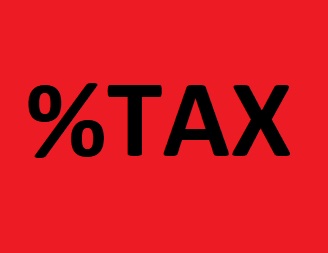01 June 2023
97% tax scale – are we going for a Guinness Book record?

The paths followed by the thoughts of our legislators are still full of mysteries. Well, after all, how else to treat the idea to tax income at a rate of 97%, if not to be in the Guinness Book of Records, as the highest tax rate in the world? How about the desire to receive the IG Nobel Prize (anti-Nobel), for its innovative approach to analyzing supply and demand in the context of extraordinary market regulation?
XXI-century luxury good
What is it that can be taxed at the highest possible rate, because further down the line, all that’s left is confiscation? Even income from so-called undisclosed sources is taxed at a lower rate of 75%. Someone uninformed might bet on drugs or other harmful substances. Well, no, these are revenues from the sale of “guarantees of origin”. And to dispel any doubts about the legality of this source of revenue, these are instruments confirming the generation of electricity in a renewable source – an instrument harmonized throughout the European Union, and in various variations used around the world, from the US to India or Japan. What’s more, it is an instrument that is highly coveted by the industry, because it allows it to document the use of green energy, and is thus a key element in reporting on sustainability strategies.
Desired green certificates
The only source for obtaining a guarantee of origin is RES power generators, and it is they who, by selling such a guarantee, are expected to give back 97% of the revenue (not profit) from it. In justifying this legislative change, the Ministry of Climate and Environment cited an initiative from industry, complaining that guarantees of origin are too expensive (the current price ranges between PLN 11-14 per MWh), and they badly need them. If this is true, the industry, in turn, could be a candidate for the Darwin Award, as it’s probably not hard to imagine that no one of their own free will would make the effort to obtain such guarantees (they are not assigned automatically), just to get 42 cents of additional revenue from it when selling 1 MWh of energy. To give a good idea of the scale, a photovoltaic farm with a capacity of 1 MW, on an annual basis, will record revenue from the sale of guarantees of origin (after paying this tribute) of about 420 PLN. The effect will be quite predictable – a reduction in the supply of guarantees of origin on the market. The way out, of course, is – import, because it is a harmonized instrument, but in such a market situation, when the supply from the main supplier radically decreases, and the demand is still high, will prices go down? If this is the case, then indeed the IG Nobel Prize for the Ministry of Climate and Environment is due.
What else can we expect?
Last year, we had a rather similar attempt at a novel approach to imposing disproportionate and unjustified tributes in the proposed direct line regulations. At the time, it was proposed that energy supplied through a direct line (off the electricity grid) be charged the same distribution fee rates as energy supplied through the electricity grid. At the time, I referred to this as “system harassment” https://tundraadvisory.com/en/is-it-finally-the-time-for-a-private-wire/ because how else can you describe charging a fee for a service that is not provided? Today, in the bill to amend the law, it looks better, because the burden of distribution rates has been given the name “solidarity fee”, and also the scale of this burden is already more minor.
It’s a bit scary what the idea will be next….
Grzegorz Skarzynski
Partner
Tundra Advisory



